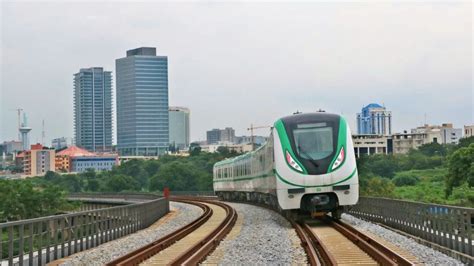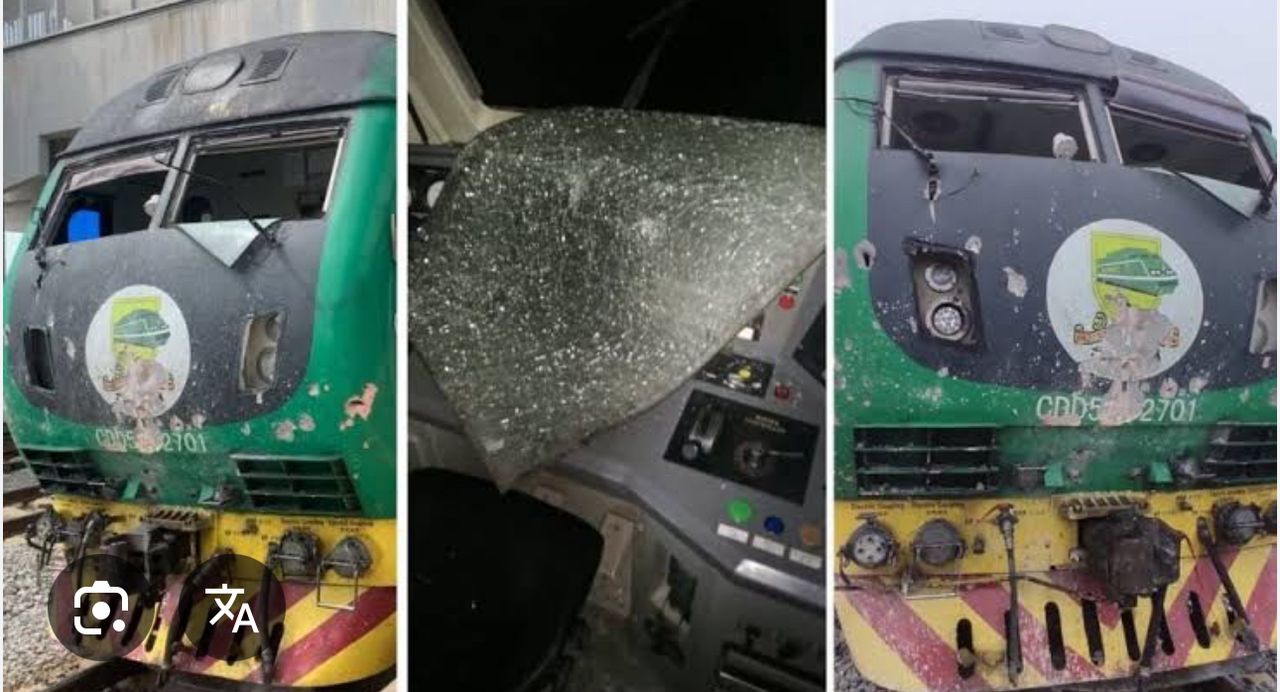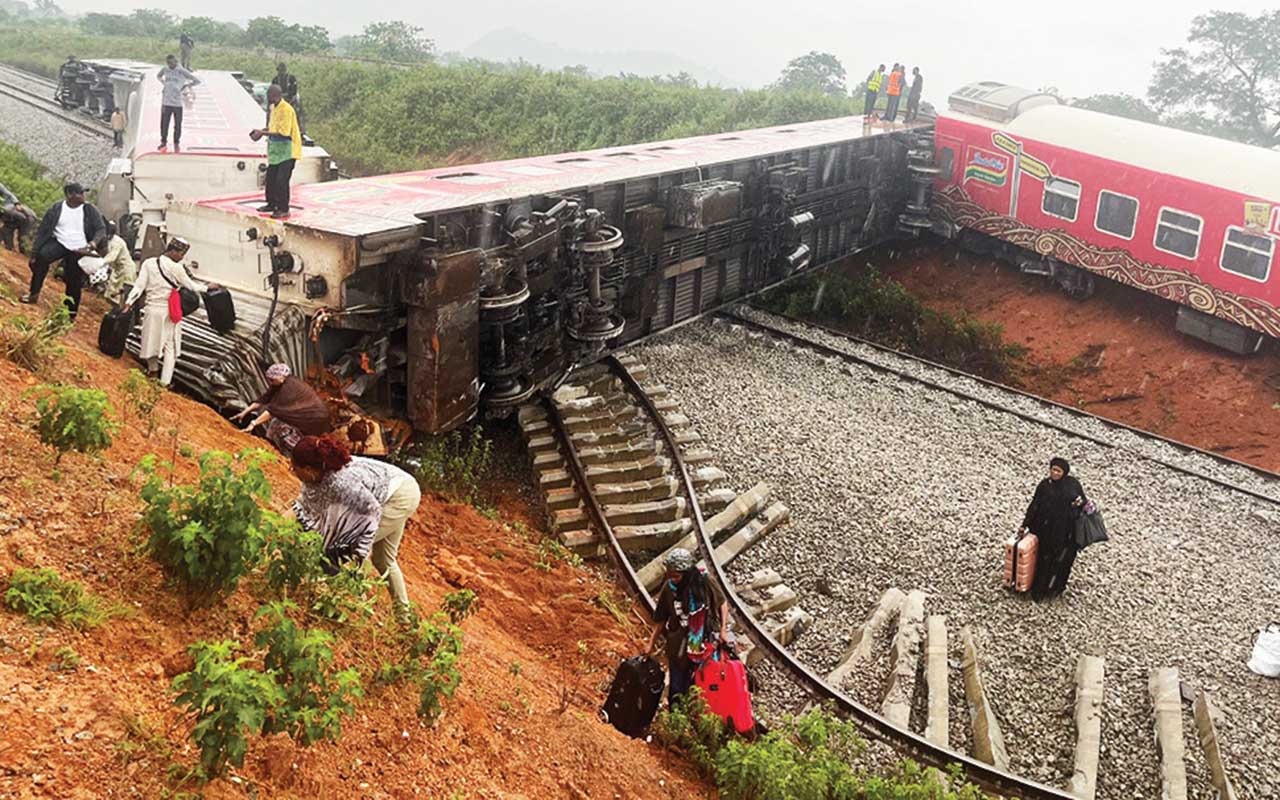
When the Abuja–Kaduna train service was commissioned in 2016, it came as a breath of fresh air. For years, the Abuja–Kaduna expressway was a death trap, plagued by kidnappings, armed robberies, and poor road conditions. The railway offered not just a faster and more affordable alternative to road travel, but—perhaps more importantly—a sense of security for ordinary Nigerians who needed to move between Abuja and Kaduna.
At its peak, the train became a symbol of relief. Families, students, civil servants, businesspeople—all felt reassured that at least one major artery of movement in Northern Nigeria was safe. But this sense of security was shattered on March 28, 2022, when terrorists attacked the Abuja–Kaduna train, killing passengers, injuring many, and abducting dozens. That moment marked a turning point: the very service people turned to for safety had become a theater of blood and trauma.

From Trust to Trauma
The kidnapping incident was not just an act of terror—it was a statement about the fragility of Nigeria’s infrastructure and governance. For months, survivors and families of victims recounted horrifying stories of ransom negotiations, failed security coordination, and the absence of accountability. Trust in the train service was deeply eroded.
Yet, Nigerians being resilient as always, many eventually returned to the railway. With air travel either suspended or too expensive for the majority, and the Abuja–Kaduna road still unsafe despite repeated contracts and government assurances, the train seemed like the “least bad” option.
But the relief was short-lived. In May 2024, a derailment occurred along the same corridor, raising questions about safety, maintenance, and operational standards. The recent August 26, 2025 derailment only deepens this fear: Was it sabotage? Poor maintenance? Negligence? Whatever the cause, it is clear that Nigerians’ lives continue to hang in the balance whenever they board the train.
Air Travel: A Distant Alternative
The reality is that air travel between Abuja and Kaduna has long been irregular. Even when available, the cost is prohibitive for most ordinary Nigerians. For a journey that should take under two hours by road or rail, many cannot justify spending what often amounts to a month’s income on a 30-minute flight. This is why the railway was such an important equalizer: safe, affordable, and accessible.
Today, however, passengers are caught between impossible choices: unsafe roads, unaffordable flights, or a train service that has lost the trust it once commanded.
What Lies Beneath
The problems of the Abuja–Kaduna transport corridor reflect deeper systemic issues:
- Insecurity on the roads: Despite billions budgeted, the Abuja–Kaduna road remains a nightmare of unfulfilled contracts and persistent banditry.
- Poor maintenance culture: The derailments suggest a lack of rigorous safety checks, inadequate investment in rail infrastructure, and a reactive rather than preventive government approach.
- Policy inconsistency: Nigeria often responds to crises with temporary fixes rather than long-term, systemic planning.
- Erosion of public trust: Citizens feel abandoned. When government cannot guarantee safe passage between two major cities, the very social contract is called into question.

Beyond Fixing Tracks: Fixing Systems
The Abuja–Kaduna corridor should be a lesson in governance, not just infrastructure. It is not enough to repair tracks after derailments, or to deploy soldiers after attacks. What Nigerians need is a holistic approach:
- Transparent accountability for contracts awarded on the Abuja–Kaduna road and rail system.
- Investment in modern rail safety systems—from automated signaling to real-time monitoring of tracks.
- Security sector reform to ensure intelligence-led prevention of terrorist and bandit attacks.
- Public communication and trust-building, so Nigerians know that their lives are not expendable statistics.
A Question of National Dignity
At its core, this is not just about transport—it is about dignity. The ability of a citizen to travel from one city to another without fear is one of the most basic markers of a functioning state. Each derailment, each kidnapping, each broken promise chips away at that dignity.
Nigeria must decide whether its people deserve safe, affordable, and reliable transport—or whether insecurity, neglect, and corruption will continue to dictate how we move.
Until then, every time a train leaves Abuja for Kaduna, passengers will not just be traveling; they will be gambling with trust that has already been broken too many times.